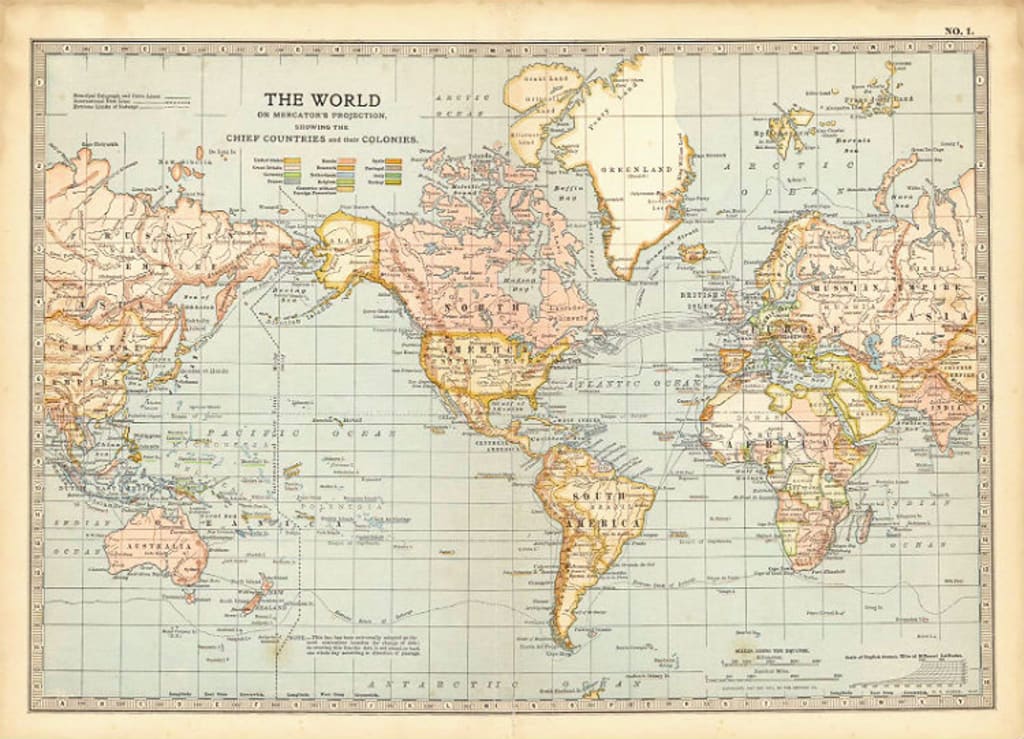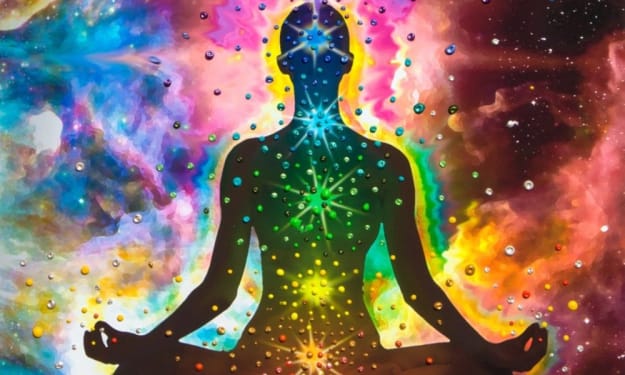Why Do Sciences and Maths Evolve Over Time, but the Humanities Do Not?
An Inquiry Into Why Curriculum Is Failing Our Children and Teachers

Upon completing my undergraduate degree, I have pondered the question, ''Why is there a progression in sciences and in maths, but not in the humanities?''—based partly on my own experiences from kindergarten to the end of my first Bachelor's Degree. I have noticed, and often stressed over, how as I got older all of the materials taught in my science and maths classes became more intricate and complex. Whereas, in my history or humanities classes (the name changed depending on what grade I was in), we tended to cover the same course material over and over again.
I have always looked at education as being like a set of stairs that lead to your ultimate goal. We start kindergarten learning the basics: how to write our names or other small phrases, practicing skills that we were taught at home like how to share, how to be caring to others and the materials in the classroom. First grade begins and there are new skills that are incorporated, addition and subtraction are taught, students learn how to create sentences that are slightly more complicated, children also begin to learn how to read around this stage. With each passing year, students are faced with a curriculum that is a little more difficult as mastering the material learned the previous year unlocks a new understanding of the more complex subject matter.
In my experience, the curriculum breakdown for maths and science goes as follows:
- Kindergarten: Children learn the basics of counting (from 1-10), either with their fingers or other objects that are found in books or in the classroom. Children learn the basics of science through fun experiments; playing with magnets (polar opposites versus polar similarities), what floats? What does not float? Using very hands-on experiments that introduce them to the world of science.
- Grades 1-4: Students learn addition, subtraction, multiplication, and long/short division. They will spend some time learning how to count money, measurements (grams, liters, meters), and they'll be introduced to basic fractions. Geometry will be taught as well. In the sciences, students are introduced to topics like biology, physics, and chemistry. Biology is at the forefront of the science courses at this stage because students are learning about animals and the ecosystems that they live in.
- Grades 5-8: Algebra is introduced to students. Topics in maths like geometry, statistics (probability is the focus), and the basic forms of calculus are explored during this grade bracket. By the time that students enter the eighth grade, concepts like exponents have been introduced that prepare them for the different math classes that might be available to them upon entering high school. In the sciences, there is an equal emphasis on biology, chemistry, and physics. Astrology is sometimes included in the science curriculum.
- High School, Grades 9 - 12: The sciences are split into the three branches that are taught in schools: biology, chemistry, and physics. By the time students reach grades 11 and 12 they can enroll in advanced science classes or even advanced math classes depending on what the post-secondary institutions require for admissions criteria. For math classes, the courses offered in high school are calculus, statistics, and sometimes economics.
Meanwhile, the humanities/history curriculum is laid out as follows:
- Kindergarten - Grade 3: Children are introduced to the humanities at a basic level, they are guided to do research in the forms of portraying a historical figure at a class presentation or observing a class presentation. They learn about an aspect of a culture through presentations given by guest speakers in the classroom or by their own research (enabled by the parents or guardian).
- Grade 4 - Grade 8: Students (in the Canadian curriculum) are introduced to a variety of topics in the humanities. Beginning with the history of Canada, a very diluted and censored version of it. The Medieval period is taught, sometimes the history of different peoples are taught in the classroom during this time bracket (i.e. Greek history, Egyptian history, etc.). In grades 4 and 5, there is an introduction to Canadian history and they usually blend world history with Canadian history.
- High School, Grade 9 - 12: Student (in the Canadian curriculum) continue to learn about World History with an emphasis on four European powers: Britain, France, Spain, and Portugal. In the Canadian history courses, students are taught the story of how Canada became Canada. However, this history is extremely Eurocentric and is primarily focused on the white men that shaped Canada's history as we know it today. Topics like slavery, despotism, absolutism are discussed, but there is a heavier emphasis placed on lighter topics that erase the history of others who contributed to the ''founding'' of Canada.
The humanities curriculum in schools should talk about history the way that it is spoken about in University classes. I completely understand that, for some age groups, teaching history classes that go into detail about topics like cultural genocide, slavery, the despicable side of colonization, and the destruction of peoples for the purpose of exploitation can be considered inappropriate. However, this is a topic that should not be pushed to the side for the sake of keeping students in the dark about real issues.
Math and sciences are not linear topics, and anyone who has studied history or even has a slight interest in history will note that this subject is NOT linear as well. Why doesn't the history curriculum reflect the changes that have been going on and have been documented for long periods of time? Does it have to do with shielding our students from the horrific parts of history? If this is part of the reason, it keeps students from becoming aware of the transgressions that were committed in the past. If you have a problem and you ignore it, this problem will not go away until it is dealt with accordingly. The members of society who create the curriculums that are supposed to teach our children only want their audiences to learn about certain parts of history in hopes that no one will discover the horrible transgressions that were committed thus never breaking the cycle of suffering that history brings out.
About the Creator
Vanessa Skerry
A High-School history teacher in the making! Looking to work on improving the quality of my writing. I love discovering new things and sharing new things with the world 😁
Enjoyed the story? Support the Creator.
Subscribe for free to receive all their stories in your feed. You could also pledge your support or give them a one-off tip, letting them know you appreciate their work.






Comments
There are no comments for this story
Be the first to respond and start the conversation.